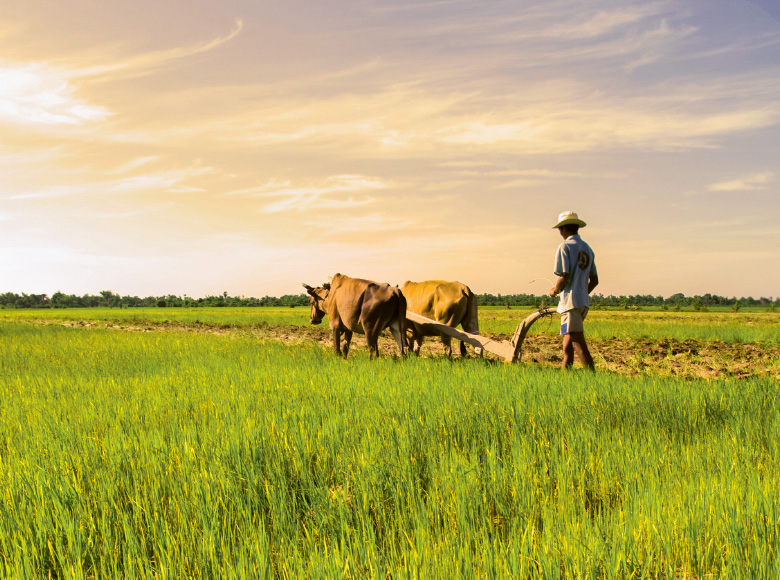Transactions: Asia-Pacific

Asia is expecting a significant increase in its ageing population over the next 15 years. It is estimated that, by 2035, 450 million people will be 75-84 years old. For traditional three-generation households, this means that the current “sandwich” generation of working adults is experiencing an increasing financial burden since they are taking care of their children’s needs (eg tuition fees and childcare), as well as their ageing parents who are living longer in retirement due to medical advances. This comes in addition to juggling housing loan costs, saving for their own retirement and building a financial safety cushion to protect against unexpected events.
To help manage these financial risks, we co-developed, with our local Asian insurance partners, an award-winning product that breaks new ground by providing cover to the policyholder, as well as their children and parents. Customers can get insurance against mortality, disability and a host of critical illnesses. Coverage is included automatically for the policyholder’s children and parents without them having to go through medical checkups – the policyholder just needs to register the family members to be covered. This is a breakthrough in providing a smoother and more efficient customer experience and simplifies the underwriting process for insurance buyers.
This one-policy protection solution relieves some of the financial and emotional burden for the “sandwich” generation. By integrating coverage and simplifying the process for individuals who want to have their children and parents insured, it strengthens the financial resilience and support systems for multi-generation families in Asia.
With more than 300 million farmers, China is one of the world’s largest food producers. It is also one of the most exposed to extreme weather events due to its vast size, complex geographical environment and varied climate. Insurance is widely recognised in China’s disaster relief approach as a key factor in enhancing resilience. To this end, provincial governments are increasingly using insurance instruments to support relief programmes and facilitate recovery and rebuilding efforts.
In 2019, Swiss Re developed a parametric natural catastrophe programme for the Agriculture Bureau of Shaanxi Province, in partnership with a local Chinese insurer. The programme covers drought, excessive rain and heavy rainfall in seven counties around the city of Shang Luo, where poverty remains a particular concern. When the strength of one of the named disasters goes beyond a pre-defined trigger point, the programme quickly makes payouts to the Agriculture Bureau, which can then use the funds to initiate recovery efforts in the affected areas. The financial stability and security gained in this way help mitigate the impact of natural disasters on the livelihoods of the region’s farmers.
Shaanxi’s disaster management and financial preparedness planning highlight ways to alleviate the costs and impacts of natural catastrophes. This contributes to greater resilience of low-income communities in the region and strengthens their food security.
Indonesia is Southeast Asia’s largest economy as well as the world’s fourth-most populous country. At the same time, Indonesia is particularly susceptible to natural catastrophe risks because it is in a seismically active region. Despite the substantial risk of disasters and the related need for insurance across the archipelago nation, Indonesia has not previously insured state assets due to the difficulties in assessing the different types of risks existing across its more than 17 000 islands.
For 2019, Swiss Re was named the lead reinsurer for the Indonesian government’s natural disaster insurance programme, which is supported by a consortium of 56 insurance and reinsurance companies. The programme helps protect critical public assets such as ministry and institutional buildings against earthquake, flood and fire, as well as a number of man-made risks. With the programme planned to continue through 2023, the government and consortium have designed and agreed on a flat-rate insurance scheme that, in a first step, provides coverage for 1 360 buildings and assets owned by the Ministry of Finance.
Swiss Re’s Public Sector Solutions team has played a key role in advising the Indonesian government on the risk financing initiative and for developing a holistic approach. While the initial coverage includes the assets of the Ministry of Finance, assets owned by ten further ministries and agencies will be reviewed in 2020. In 2021, the number of included ministries can increase to 20 and, in 2022, to 40, with the ultimate goal being to cover all ministries and institutions for 2023. As a leader in developing solutions at the sovereign and sub-sovereign level, we are honoured to help boost Indonesia’s resilience.

Insurance plays an important role in ensuring the financial security of farmers, particularly in countries with a large agricultural sector. In Cambodia, for example, about three million people, or almost 20% of the country’s population, are engaged in rice farming. The crop thus plays a major role in securing livelihoods, but production is highly dependent on the right weather conditions. As it is particularly sensitive to excessive or insufficient soil moisture, flood and drought conditions can have a catastrophic impact on rice crop yields.
With our local partners Agribuddy and Forte Insurance, Swiss Re supports Cambodian rice farmers with soil moisture index insurance in 90 communes across multiple provinces. By using innovative soil moisture index data from satellite imagery, our expertise in parametric insurance products and our reinsurance know-how, we were able to develop a solution that accurately meets the needs of rice farmers in non-irrigated areas. This includes the ability to quickly compensate farmers for total or partial losses of crop output.
Crop insurance not only helps farmers reduce the risk of losing their production inputs for current crops, but also means they can avoid having to take out additional and/or larger loans to finance future crops. Ultimately, getting access to adequate financial protection means farmers can overcome the risks caused by uncertain weather and stabilise their livelihoods.